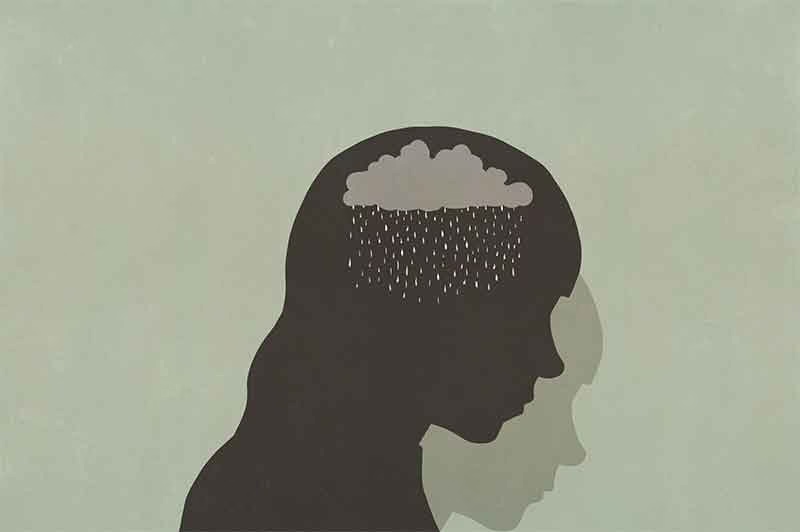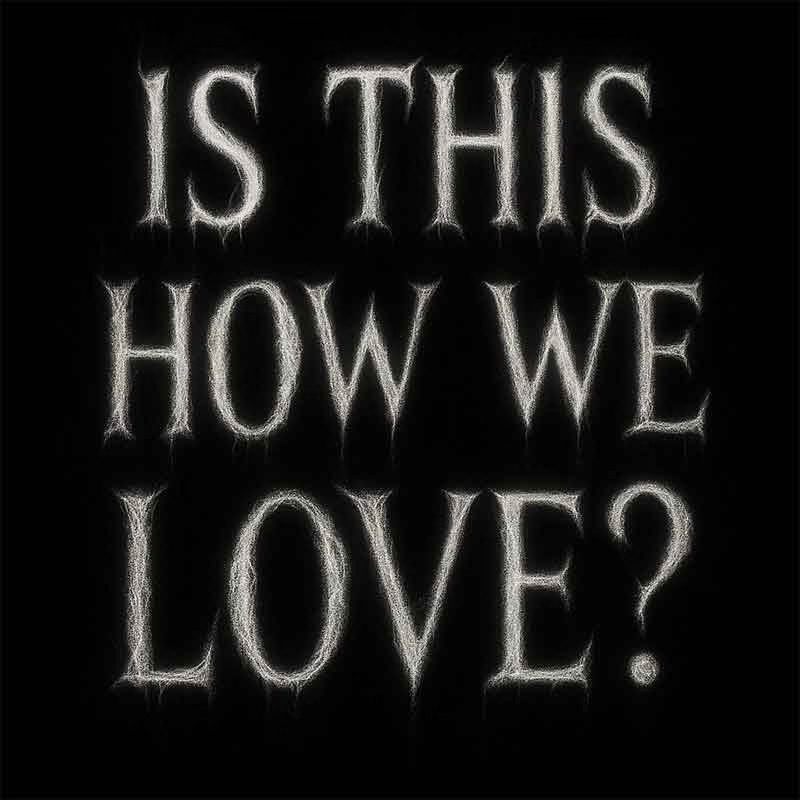
Grief doesn’t just hurt. It scrapes. It reshapes. It walks into your life like an uninvited storm and decides to stay. It tears down the person you were and leaves behind someone you do not recognise.
Someone with sharper edges.
Someone who laughs at the wrong time.
Someone who no longer waits for their turn to speak.
I used to be careful. Words passed through filters, like tea through a strainer—only the polite parts made it out. Now I spill. I spill everywhere. Since my father passed away, my words don’t wait for permission. They come out raw, sharp, dark. My jokes have grown teeth. My reactions run ahead of my thoughts. There is no line anymore between what I think and what I say.
But this change didn’t come out of nowhere. It started when cancer entered our lives. Each day with him felt like watching a slow collapse. The more I watched my father slip away, the more it felt like something inside my head was sinking—like my thoughts were trapped underwater and no one could see I was drowning. And to survive, I turned to writing—not because I wanted to become a writer, not because I had dreams of publishing or being read. Writing gave me something else: a pause. My thoughts ran wild, but my fingers moved slower. That delay saved me.
Prestige was never the goal. I don’t have awards or a name people mention at conferences. I’m just a Ph.D. student who stumbled into writing the way someone stumbles into a room looking for air. But when life piles on—college attendance sheets, family duties, deadlines—writing fades. And when writing fades, the danger returns. My humour becomes unpredictable. My speech loses brakes. Thoughts leap out before I’ve even seen them coming.
There was one day in particular. A conversation with my co-supervisor. I said something inappropriate—so inappropriate that I don’t even remember what it was. It left my mouth like breath. Effortless. But the look in his eyes, the quiet that followed, stopped me. And for the first time, I asked myself: what is happening to me?
That question opened a flood. Reading. Research. Therapy. I tried talking to someone online. It didn’t help. It felt like trying to leash a storm. But the reading—that helped. I realised I wasn’t just changing. I was grieving. And grief, I discovered, doesn’t stay in the chest. It climbs into your brain and starts rearranging things.
The Brain, Unfiltered: What Grief Does to Thought
Grief isn’t just emotional. It’s chemical. Biological. When you lose someone you love, your brain begins to shift. The prefrontal cortex—the part that holds back your impulses—slows down. Meanwhile, the amygdala, which handles emotion and fear, becomes more active. The result? You feel too much, and say too much, all at once. It’s like someone broke the dam, and suddenly you’re the flood.
Words now leave me without warning. What I said to my co-supervisor wasn’t planned. It happened before thought could catch up. That’s what grief does—it breaks the delay between feeling and speaking.
Add cortisol to the mix—the stress hormone that rises with prolonged grief—and the chaos deepens. It pushes up aggression, impulsivity, emotional outbursts. It means the things I say aren’t just emotional—they’re chemical.
Joking Through Pain: The Sharp Edge of Humour
My humour has changed. It’s not soft anymore. It cuts. Sometimes people laugh, sometimes they shift uncomfortably. I understand why. I joke about things no one wants to mention. But I do it not because I find it funny, but because it’s the only way I can survive feeling everything else.
Freud once said that jokes let us say what we can’t say directly. Humour is a kind of disguise. A mask grief wears when it doesn’t want to cry in public. I feel that now, in a way theory books never taught me.
Chandler Bing from F.R.I.E.N.D.S. isn’t just funny—he’s fractured. His sarcasm is how he copes with a childhood full of silence and hurt. I see myself in that. Humour has become my shelter. It lets me say the unspeakable without falling apart.
We live in a world where we’re taught to pause before speaking. We shape our sentences to avoid hurting others. We smooth out the edges. But grief doesn’t care about that. It breaks the distance between thought and mouth, and things spill out raw.
That’s when people start leaving.
Grief isolates. Not always because we want to be alone—but because what we say in grief makes others want to be. Too sharp. Too much. Too honest. I’ve become that person. And it hurts, because I need people more than ever, but my words seem to push them away.
I’ve tried silence. I’ve tried suppression. But holding it in turns grief into poison. Writing is the only thing that works. When I write, my speed slows. My thoughts wait. My words no longer rush ahead of me. And in that stillness, something soft begins to return.
Psychologists call it “complicated grief.” It lasts too long. It digs too deep. It doesn’t let you return to yourself. Instead, it gives you a new version—one who speaks too fast, feels too much, and sometimes hurts others without meaning to.
Maybe that’s what’s happening to me. Maybe it’s not just mourning. Maybe I’m stuck.
But I don’t want to mute this grief. I just want to learn how to hold it without letting it speak over everything else. I want to be heard—but not feared.
Conclusion: Finding Voice in the Wreckage
Grief doesn’t disappear. It changes shape. It stops being a storm and becomes the air you now breathe. It moves into your language. It steals the pause between what you feel and what you say. It makes you louder, sharper, messier.
Maybe the old version of me—polite, restrained, thoughtful—died with my father. But writing lets me rebuild. One line at a time, I find a version of myself that can feel without collapsing. That can speak without harming. That can carry the grief without handing it to someone else like a live wire.
I don’t write to heal. I write to breathe.
Subscribe to Our Newsletter
Get the latest CounterCurrents updates delivered straight to your inbox.
Disha is a Ph.D. Scholar and Senior Research Fellow at Dr. K. R. Narayanan Centre for Dalit and Minorities Studies, Jamia Millia Islamia, New Delhi, India. (ORCID: https://orcid.org/0009-0006-7124-9438)
















































